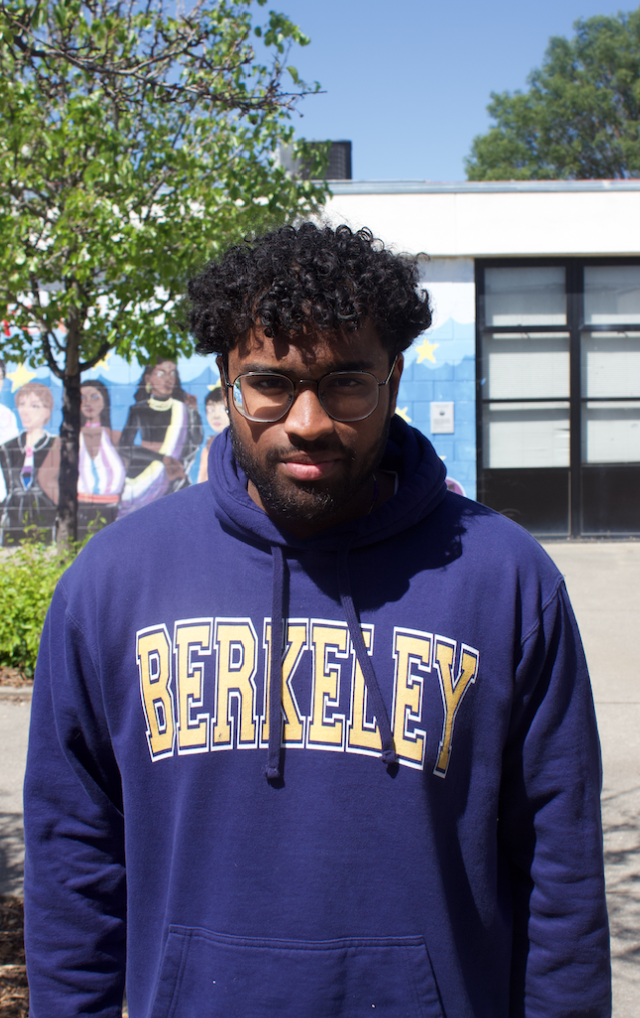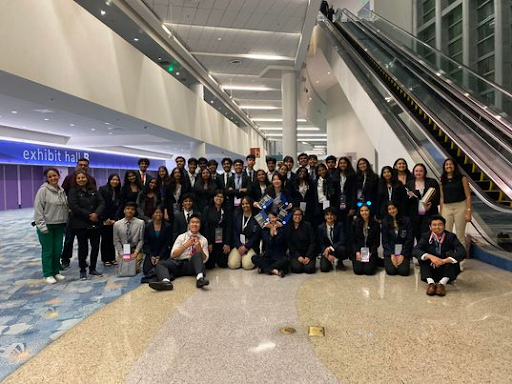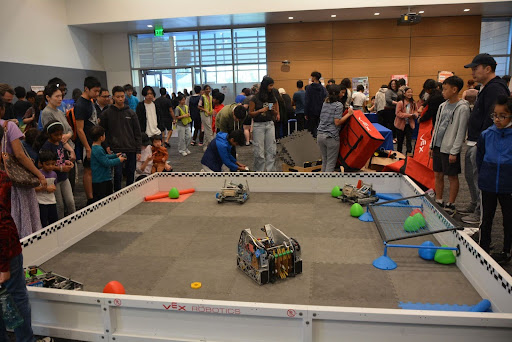OUR LADY OF THE SNOWS
INSTALLMENT ONE
* * *
NEREIDA
* * *
When her eyelids drooped slightly, the trees outside the window appeared to blur into a monochromatic green mass, with a flash of white or brown here and there. She leaned back against the grey leather headrest, lazily watching the cedar and pine trees rush past. The four windows of the 1997 Nissan Altima had been rolled down about two inches; the sharp mountain air drifted in over the glass. Mixed with the stringent scent of the pine needles was the sweeter, dusty scent of the wildflowers which grew in clusters along the side of the earthy road.
“Neddy? Neddy.” The voice was impatient, insistent. Nereida Golden sat up slowly, turning her head slightly to see her sister Iantha looking at her. “When you had Mrs. Mei in freshman year, did she ask for the compound interest formula on the logarithm test?”
“Probably,” said Nereida. “I don’t remember, it was two years ago now, Iantha.”
“But you have to remember!” Iantha sounded panicked. “I’ve forgotten it! I know I won’t remember it on the test!”
“Well, she might ask for continuous interest instead. Just remember ‘pert,’ for that one, and ‘p times one plus r over n the whole raised to n times t,’ for compound interest.”
“I know that. I’m afraid the formula will desert me in my time of need.”
“It won’t,” said Nereida, amused. “If you know it now, you’ll know it then.”
“I hope so,” said Iantha, heaving a dramatic sigh.
“Sssh,” said Nereida, flapping her hands. “Snow’s coming into view in a moment.”
“You still marvel over the sight of Snows in the morning and you’re a junior,” said Iantha, laughing and shaking her head. “It is beautiful, but why do you always call for silence when we get near it?”
“Because it’s always more beautiful in silence, now hush, Iantha.”
Our Lady of the Snows was the high school which both Iantha and Nereida attended. Finding it irksome to say, “Our Lady of the Snows,” every time they referred to their schools, the students had abbreviated the name to simply, “Snows.”
From the wooded road leading up to the school, the first building that could be seen was of pure white marble, a stark grey in the deep blue light. The stained-glass windows, illuminated from the inside, cast pools of red, blue, and green upon the frost-coated grass. Not a soul besides the two sisters and their mother was present to witness the spectacle that the sunrise made of the chapel every morning; to see the starkness of the tiled roof turn from a dull brown to a gleaming mass of gold, or to see the smooth walls glow scarlet as the dawn began to paint the sky in tints of yellow, rose, and violet. The belfry, in which a heavy bronze bell hung, gleamed orange in the piercing sunlight.
Ever so slowly, the silent blaze of glory came to life amidst soft birdsong from the many trees that surrounded Ophelia Hall. Once the marble was nearly blinding in its brilliance, it began to dim, and rather than an opulent torch, the Hall was seen for what it was; a large, two-story marble building with stained-glass windows.
Nereida and Iantha alighted from the car, waved goodbye to their mother, and hurried to the chapel’s doors. The two of them had been delayed in setting out that morning, and Nereida was certain that the Mass would already have begun.
She glanced at her watch and groaned. It was five past seven; the service would have started at five to. She pulled open one of the carved oak doors and rushed into the tiled entryway, the tapping of her feet and of Iantha’s greatly amplified by the brilliant acoustics of the dome. The thirty or so students who had come for the morning mass turned to stare at the two of them; they both went red simultaneously and sidled to the pew closest to the door.
The congregation then rose to sing “Kyrie Eleison.” Nereida lifted up her voice in the familiar hymn, which was traditionally sung in Latin at Snows. Though it was a song that Nereida had sung every morning at Snows for the past year and a half, she always found herself in need of one of the stiff white cards placed in the brackets which held the prayer-books; on these cards, the lyrics had been printed in a calligraphic script. Nereida allowed herself to become lost in the slow words…
“Kyrie eleison, Christe eleison, Kyrie eleison, Christe audi nos, Christe exaudi nos, Pater de caelis Deus, miserere nobis. Fili Redemptor mundi Deus, Miserere nobis. Spiritus Sancte Deus, Miserere nobis. Sancta Trinitas unus Deus, Miserere nobis…”
Though there were not many people at Mass that day, the singing swelled to the beams which constituted the sloping ceiling. It was a gentle, flowing song; the music of the organ was neither too loud nor too soft; Nereida closed her eyes and felt a hundred unseen voices rippling up all about her, as if from the pew before which she stood and the floor beneath. It was a song which one could almost touch, and an unbidden smile lifted the corners of Nereida’s mouth. She cast a glance to the side and noted that Iantha had replaced the card on which the words were printed, and had given up on trying to pronounce the Latin words. She was singing with her lips widely parted, allowing wordless voice to stream forth, pausing every ten seconds or so to take a deep breath. Iantha had a remarkable voice, low, rich, and warm all at once, and was at its most beautiful with no words to contort it.
When the song approached its end, the music seemed to die down slowly rather than stop. Nereida sat down again, feeling calmed and, inexplicably, healed of all tension that had been present in her body.
As the priest began to speak again, Nereida found her thoughts wandering. That morning, as she had been getting dressed, Iantha had shouted through her door that the omelette bar would be open that day. The mere thought of it was enough to make her mouth water; the young woman who ran it, Sophia Yida, had gone on vacation to visit family in Connecticut. Neither Nereida nor Iantha had gone to the dining hall since she had left; both of them ate exactly the same breakfast, every morning. The first and most savored item was an omelet made by Sophia, which would be stuffed with olives, tomatoes, mushrooms, and cheese. The second was a wheat muffin spread with a thin layer of butter, and accompanied by a glass of milk, or coffee on the days when they had tests. They could have done with scrambled eggs or sausages while the omelette bar was closed, but both of them had chosen to eat at home every morning until Sophia returned…
“Neddy. This is ridiculous.”
“Uh?” said Nereida, coming out of her thoughts and focusing bleary eyes on Iantha’s face. Behind Iantha, the others who had been in the chapel were filing out.
“You were thinking about the omelette bar again, weren’t you?”
“So what?” asked Nereida with a grin. “I know that you were too.”
“Yes, I was, but that’s beside the point. Look at the time.”
Nereida lifted her left wrist to her eyes and scrutinized her watch. It was twenty-five past seven; they had thirty-five minutes to stand in the lines in the dining hall, have their breakfast, and go to their first class.
“Come on, Iantha!” she cried, leaping to her feet and dashing through the open door. Iantha rolled her eyes and followed. Neither of the two stopped to rest or take a breath until they had reached the dining hall, which was on the other side of the school. In their effort to reach it as quickly as possible, they had cut across the plots of the Gardening Club, the volleyball court, and raced around the deck of the pool.
“Whew,” panted Iantha, stooping over and placing her hands on her knees as she regained her breath. “I did not know that you could run like that, Ned.”
“When omelettes call, one must go,” said Nereida with a dramatic air. “Come in, Iantha, don’t stop now, we didn’t come all this way to stop at the doors.” She proceeded into the dining hall, with Iantha on her heels. To their surprise, their was a short line at the omelette bar. The two girls seized plates and dodged through the bakery line to reach it.
“How come there aren’t many people here today?” asked Nereida.
“No one knew that Sophia was coming back today,” said Iantha with a shrug. “At least, I suppose that’s why.”
“Then how did you know, pray tell?”
Iantha laughed. “She told me the day before Winter Break that she wouldn’t be back until the twentieth of January. I don’t know if she told anyone else, but I don’t think she did.”
“Oh,” said Nereida, feeling foolish for a moment.
When she and Iantha moved to the head of the line and obtained their stuffed omelettes, they took a wheat muffin and a pat of butter each from a tray. At the drink fountain, Nereida added a glass of milk to her tray, while Iantha went to one of the coffee-makers and proceeded to make herself a cup of sweet milk coffee.
Once they were finished getting their breakfasts, they returned to the main wing of the dining hall. It had a high, sloping ceiling, very like the ceiling of the chapel, and similar stained-glass windows. Four long rows of tables were set here, reaching from the front of the large room to the back, where the doors were. Nereida and Iantha parted here; Iantha went off to join her friends, a pair of twins called Alice and Anika Rose. Their table was the one closest to the left, where the ceiling was only seven feet from the floor. Small lamps hung from the ceiling, making the forks and spoons already laid out glow with a bright, silvery light. Nereida proceeded to a table in the center of the hall, where her closest friend, Kim Li, had her nose in a history book.
“Hi, Kim,” she said, dropping into a chair beside her and hanging her bag over the back of her chair. “Studying for APUSH?”
Kim’s only answer was a drawn-out moan. “Why did I ever take APUSH, Neddy? It’s not as if I’m going to use it when I’m older, anyway. All it’s giving me are sleepless nights and headaches and the need to consume three cups of coffee a day…”
“You drink too much coffee,” said Nereida.
“I only drink weak coffee,” Kim pointed out.
“Having too much in your stomach makes you sick before tests. Trust me. I know.”
“And so do I,” said Kim, with an exasperated sigh. “Anyway, I don’t even get this. Mussolini confuses me. Really.”
“She said she would ask only one essay question. The rest are all short answers.”
“But still.”
Nereida looked up at the stained-glass windows. Dust circled in the breams of colored light, streaming this way and that. They seemed to rain down upon the tables laid out below, only to disappear once they were blown out of the sunlight. A ray of scarlet fell across Kim’s history textbook, giving a full-page illustration of Benito Mussolini a comical ruddy hue. Nereida chuckled slightly at it, then shifted Kim’s book so that the small red pool fell on the table instead.
“Why’d you do that?” asked Kim, without looking up from a page which had been highlighted in pale blue.
“I can’t have a red-faced Mussolini staring up at me while I’m trying to eat my breakfast,” said Nereida, picking up her knife and fork and tucking into the long-awaited omelette. It was one of the best that Sophia had ever made; the olives, cheese, tomatoes, and mushrooms all seemed to melt into the eggs in Nereida’s mouth. She closed her eyes and savored the mouthful, before swallowing and attacking the rest of her portion at top speed.
Kim moved the book back into the path of the ray of light, considering the photograph, and then stifled a laugh with difficulty.
“You’re right.”
“And the test isn’t until tomorrow, Kim. Shut your book and eat. You’ve read it a hundred times already, and you’ll be fine,” said Nereida. “Go on,” she said sternly. “One reading more or less won’t matter when you have a plate full of breakfast and precisely five minutes to eat it.”
Kim glanced at her watch, and then closed her book and began to shovel down her breakfast, which consisted of a single sausage and a cup of fruit and yogurt. Like Nereida, she could eat little when she was nervous.
At ten to eight, the two girls left the dining hall and walked to their first classes. Iantha remained in the dining hall; her first period was a free period, which she generally spent in the library with Alice and Anika.
“I have to go to the library,” Nereida informed Kim, as they drew near to Ophelia Hall. “I need to find something for my book report. I’ll see you in chemistry.”
“Get a good one,” said Kim, her lips twitching at the memory of the last book report that Nereida had had to write. She had obtained a copy of Anna Karenina and had then left it in her desk drawer for two weeks. After Nereida had taken it out again, she had found that it was in the original Russian, and had had to use the translated version available online.
“Yes. I will. I was thinking of Jude the Obscure, or maybe Tess of the d’Urbervilles.”
“Didn’t Edouard say something about giving extra points to the people who did a Thomas Hardy book?”
“I think he did. Do you want to come with me?”
“No, I’ll get a book tomorrow morning. I don’t have Edouard today, and I still have to finish three questions for history. See you in chem, then?”
“Yes, I’ll see you there. Bye, Kim!”
Kim waved and then disappeared into the science building. Nereida turned and opened the door to the library and strode to the classics section in search of a book.
The Ophelia Library was filled with the slightly bitter scents of leather and old paper. A round, enclosed area, which the doors opened into, was filled with squashy armchairs, small round tables, and comfortable nooks in which one could curl up with a book. All around the seating area were bookshelves, arrayed in orderly rows. The fiction section was on the first floor; a staircase just beside the front doors spiraled upward in a wide arc to the reference section. Not far above the end of the staircase, the ceiling tapered upward to form a sharp point.
Suspended just below it was a scarlet banner, on which was written, “Our Lady of the Snows, Est. 1963.” Below this was the school’s crest. It bore the image of a rearing lion which stood before a cross wreathed in vines. Under the crest was the school’s motto: Fortitudum Est Primum.
The fiction section had been extended over the previous summer; now, it seemed more like a maze than anything else. The newer books were arranged alphabetically, in the main area of the lower floor. The older volumes, however, had their own section, which could be reached by walking to the very last of the modern fiction shelves. Here, there was a short hallway, which led to a smaller and dimmer room. This was Nereida’s destination.
The bookshelf which held the very oldest books was filled with tomes bound in deep red, green, blue, purple, or brown leather, with etched golden titles emblazoned in the centers of ornate frontspieces, featuring scenes from woods in the evening, castles highlighted by a scarlet sunset, or perhaps the belongings of a nineteenth-century woman, such as fans, roses, slippers, and ribbons. Every single one of them was beautiful; and most of them had been kept in nearly pristine condition. Not many students of Our Lady of the Snows frequented that bookshelf; and the few who did possessed that love of books which made them turn every golden-edged page as if it were as fragile as a poppy’s petal.
Nereida stopped by a likely-looking book, with a cover of dark blue, on which was depicted a countryside path, where a tall, thin man and a young woman holding a sleeping baby had come across a stout old woman with a long tunic and a bent hoe held over one shoulder. It was called The Mayor of Casterbridge. She slid it from its place on the shelf and tucked it under her arm before continuing to flit up and down the shelves like a pale brown butterfly in her long blouse. She paused here and there, adding more books to the pile in her arms.
At five to seven, her arms filled with books, Nereida left the classics section, walking carefully, back aching with the weight. Her view of the floor was obscured by the books she was holding, and a bag lying beside a chair passed entirely unnoticed–until she tripped over it.
Nereida went sprawling onto the floor, her books flying in all directions. Her first thought was to see if any of them had gathered dust in their fall; and she got to her feet only to see someone gathering up the scattered volumes. Once the boy had placed the five books on one of the tables, he nodded and strode briskly away, toward the stairs that led to the second-floor computer lab and reference section. Nereida ran after him, catching up with him at the first landing.
“Thanks for that,” she said, slightly out of breath.
“Don’t mention it,” said the boy, meeting her gaze with a pair of the strangest eyes she had ever seen. They were a dull grey, like slate, and though he was looking at her, she was aware of being looked through, as if she were not there. Nereida noted his impeccably ironed clothes, large ears, and unruly brown hair.
“What’s your name?” asked Nereida.
“Jules,” he said, turning to go up the stairs again. “Jules Theobald.”






